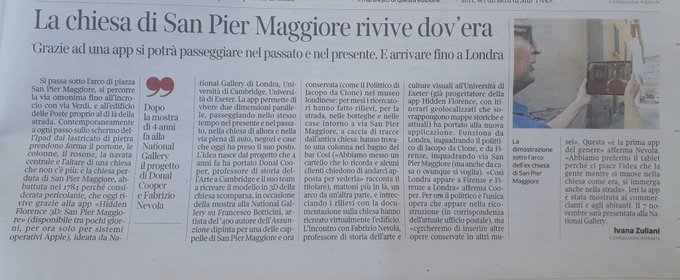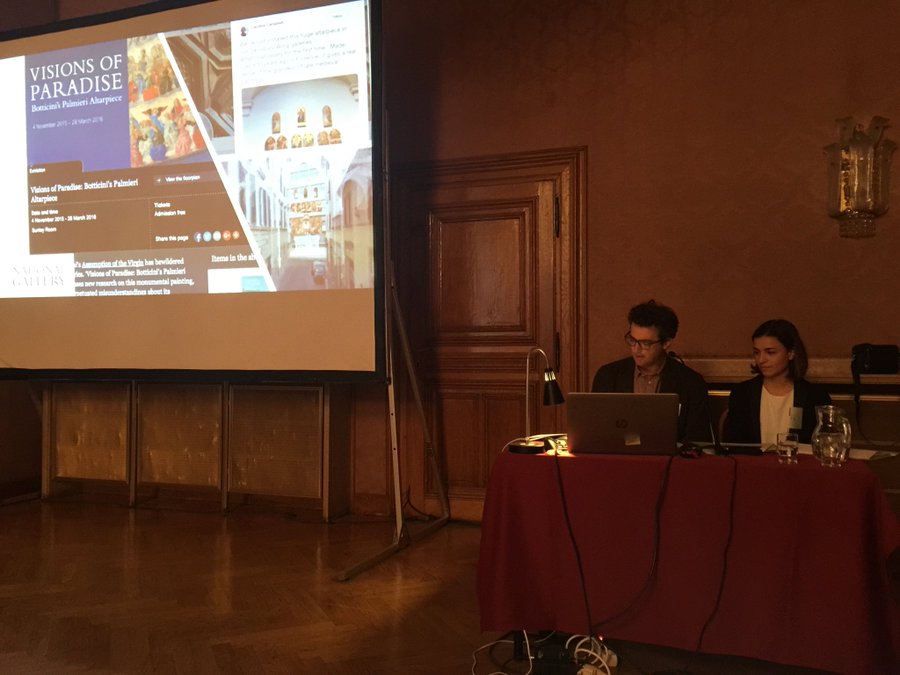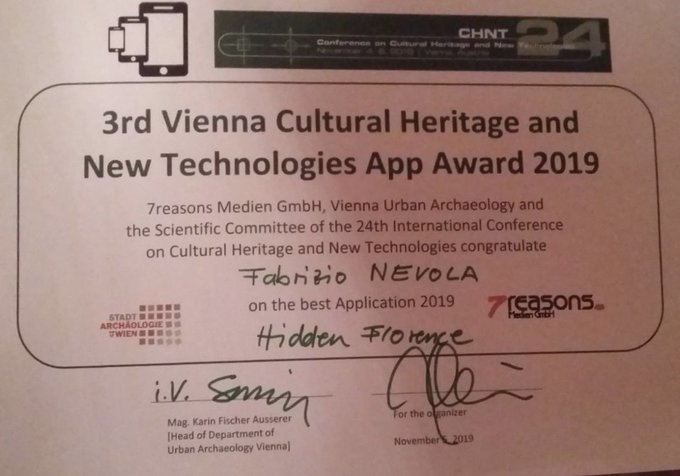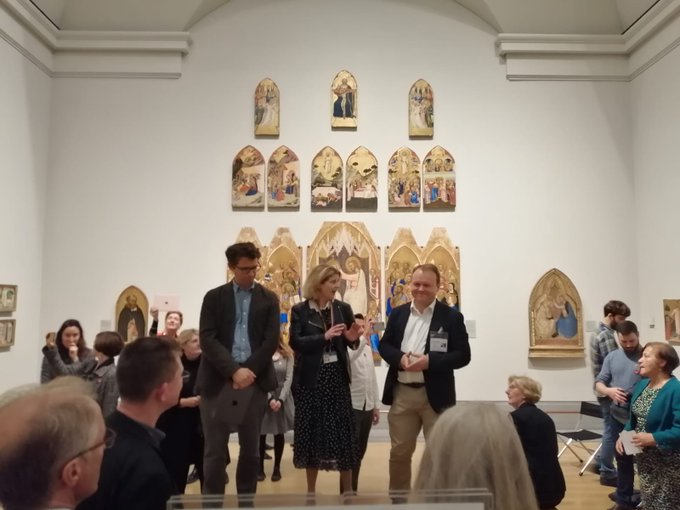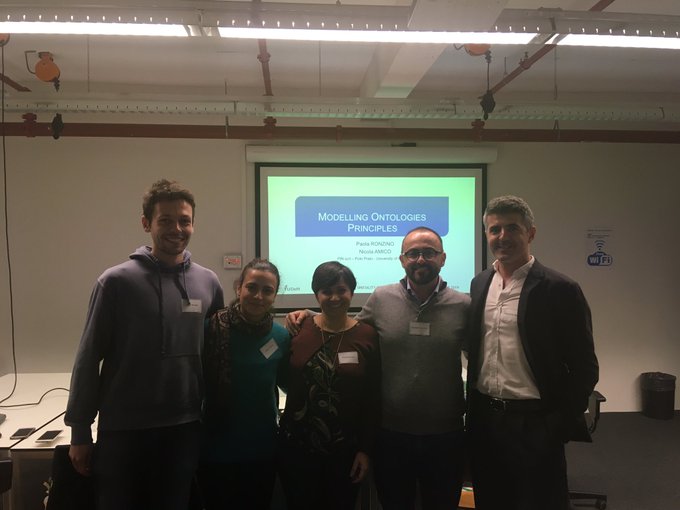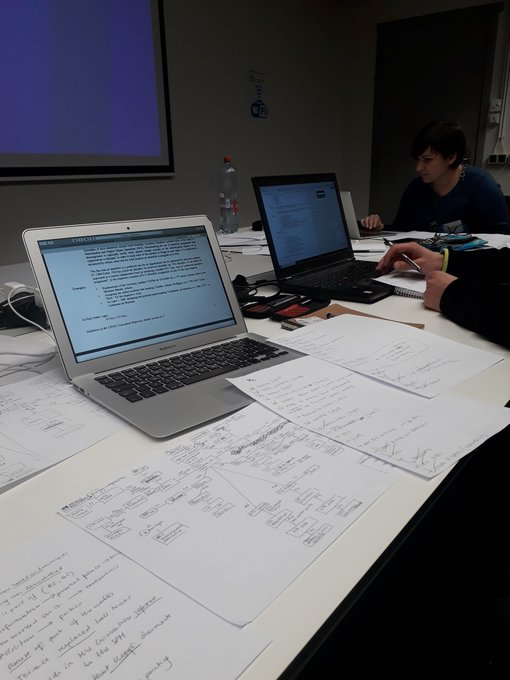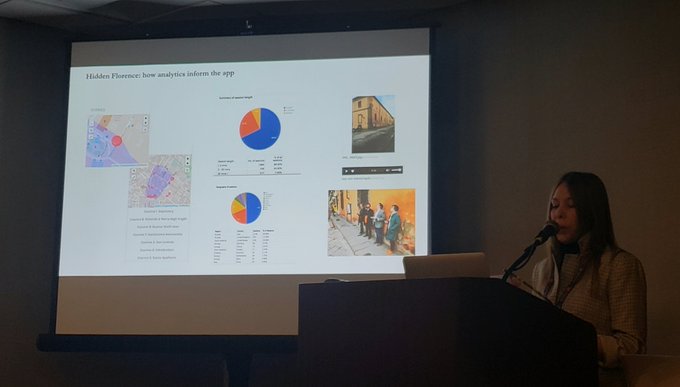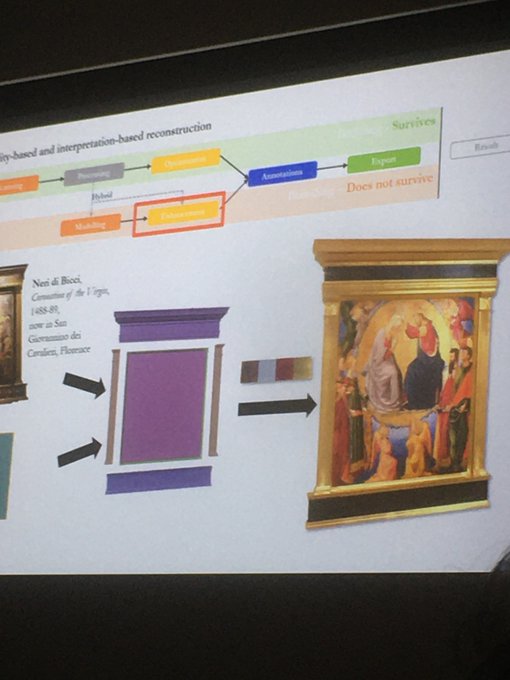News and Events
14-15 May 2019
Getty Foundation Digital Art History convening: Digital Mapping and Historical GIS at the Getty Centre, Los Angeles
Our team joined the other Digital Art History Initiative funding recipients in Los Angeles for a 2-day convening. We discussed common methodological grounds among projects, and best practices in designing, managing and sustaining our digital work over time. Lisa Snyder, Yoh Kowano,and Alison Langmead facilitated our activities and provided the teams with invaluable feedback from their extensive expertise in Digital Research.
21-25 October 2019
Florence Fieldwork and Hidden Florence 3D app soft launch
The Florence 4D was in Florence to undertake fieldwork and perform the final tests before officially launching the Hidden Florence 3D app, which allows reconstructing the lost church of San Pier Maggiore via AR where it once stood. You can watch interviews with the residents of the San Pier Maggiore neighbourhood in the dedicated page. We were delighted to see our work covered by the local edition of the newspaper Corriere.
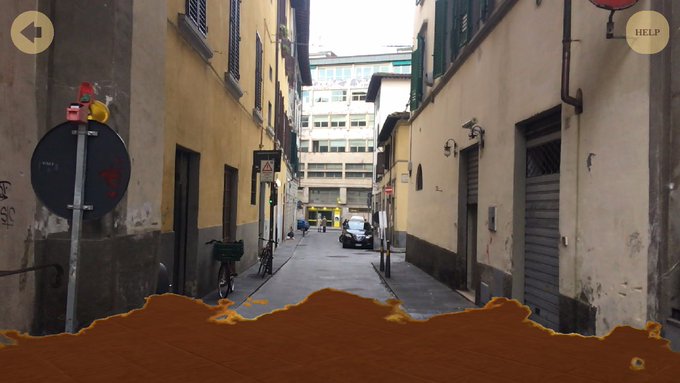
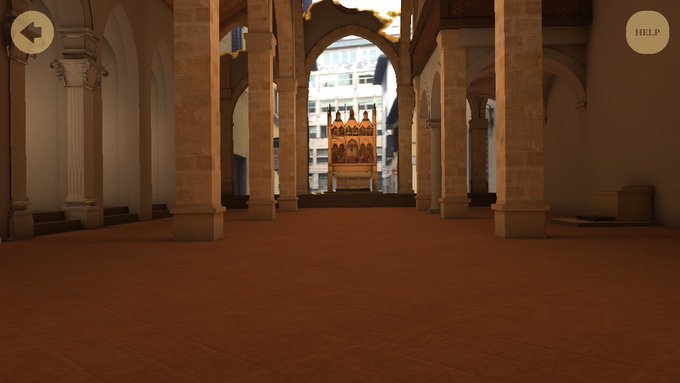
4-6 November 2019
Conference of Cultural Heritage and New Technologies, Vienna
On behalf of the Florence 4D team, Fabrizio Nevola and Chiara Capulli, together with Cristina Mosconi from the Vista-AR project at the University of Exeter, participated in the annual Conference on Cultural Heritage and New Technologies. They presented ongoing work with two papers: ‘The 3D Model of the Lost Church of San Pier Maggiore. From Primary Data to a Transparent Visualization for Public Engagement’ (long abstract) within the session: Digital and Innovative Solutions from the Single Intervention to the Museum Infrastructure for Cultural Heritage Safeguard and Protection and ‘Virtual San Pier Maggiore. Tackling the Artworks’ Diaspora and Developing Community Engagement with Digital Art History’ (long abstract) within the session: Visualising the Past.
6 November 2019
Vienna Cultural Heritage and New Technologies App Award 2019
The Hidden Florence 3D app won the best application award at the CHNT 2019.
7 November 2019
The National Gallery Research Centre Seminar
On the occasion of Hidden Florence 3D’s launch, Fabrizio Nevola and Donal Cooper delivered the seminar ‘Florence in the Sainsbury Wing - the Sainsbury Wing in Florence: digital technologies for innovation in art historical methods, interpretation and display’ before inviting the public in the gallery to join them in a practical demonstration of the app. The event was chaired by Caroline Campbell, Director of Collections and Research, The National Gallery.
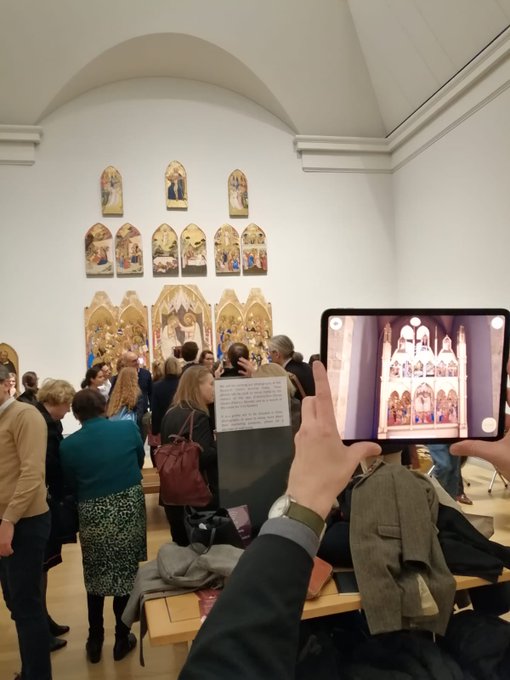
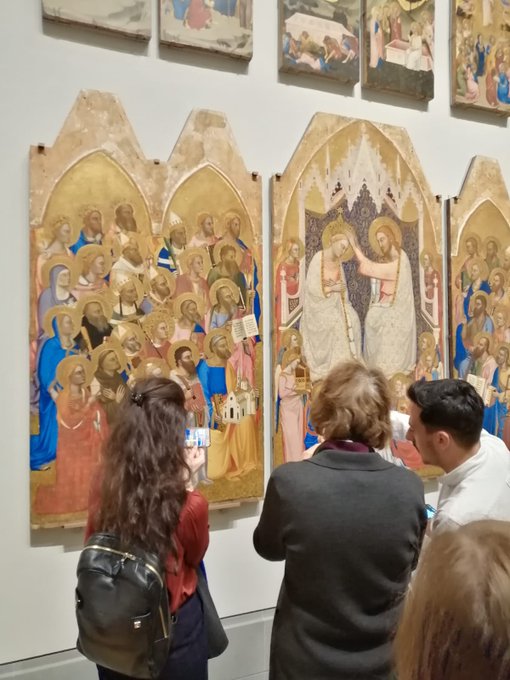
6-8 November 2019
Workshop: 3D Semantic Data Modelling at the TU Delft
Chiara Capulli and Luca Brunke participated in a practical workshop on semantic data modelling led by our project partners at VastLab (University of Florence) Paola Ronzino and Nicola Amico. The workshop took place within the TU Delft international conference: ‘Mediating the Spatiality of Conflicts’. The training was especially tailored at analysing the potential of the CIDOC CRM ontology to model digital reconstructions of buildings that have changed over time.
9 December 2019
Conference: Common Children and the Common Good: Locating Foundlings in the Early Modern World (Dai bambini “comuni” al bene comune: i trovatelli nella prima età moderna), Instituto degli Innocenti, Florence
On the 600th anniversary of the inauguration of the Ospedale degli Innocenti in Florence, the collaborative group of digital humanists Florentia Illustrata presented work that used the Innocenti as a case study to demonstrate how digital tools can generate fresh research questions and outputs on such a prominently studied building and institution. Fabrizio Nevola presented the initial results of our digital work on the hospital’s church with the paper: ‘Immersive Renaissance – New narratives for a spatialized understanding of art and architecture: the case study of the church of Santa Maria degli Innocenti’. Expanded and updated, the paper will feature the forthcoming conference proceedings.
13 February 2020
108th CAA Annual Conference, Chicago
Chiara Capulli and Cristina Mosconi joined the session ‘Advanced Topics in Digital Art History: 3D(Geo)Spatial Networks’ organised by the Wired! Lab of Duke University at the annual College of Art Association Conference. Delivering the paper ‘Firenze Scomparsa: the challenge of digitally reconstructing and disseminating Florence lost contexts’ they presented the work that the team is doing, addressing transparency of the virtual models as the main research focus, and expanded on what it means to create public-facing experiences using locative and immersive technologies. The session aimed to show some of the approaches that participants in the 2-year Getty-funded training programme adopted in their own digital projects.
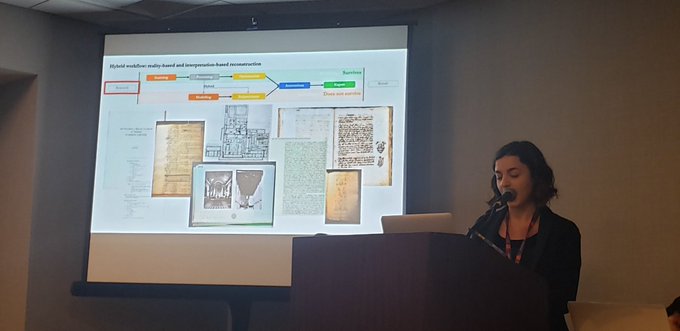
24-25 February 2020
Conference: 'Reconstruction: Methods and Practices in Research, Exhibitions, and Conservation', Centre for Visual Culture, University of Cambridge
The team presented the latest work on the case studies of Santa Maria degli Innocenti and San Pier Maggiore. The talk: ‘Virtual (Un)Certainties: Reconstructing Historical Contexts for Florentine Renaissance Paintings’ described the workflow for research-based reconstruction of church interiors, and ways of engaging the public through repurposing the research into AR-enabled mobile apps.
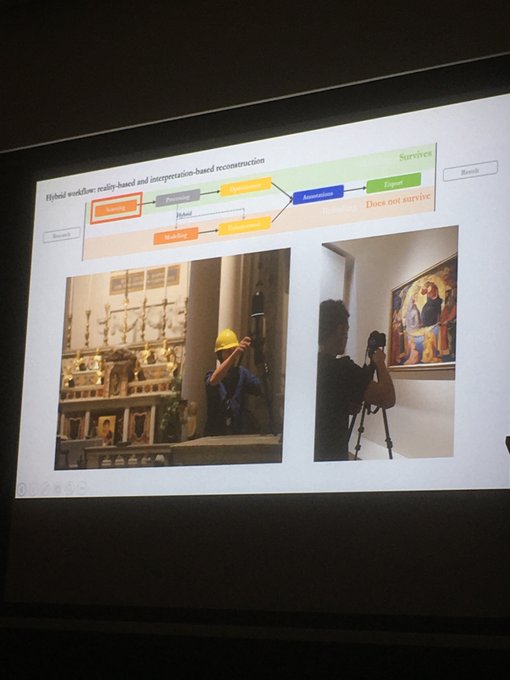
3 November 2020
UK App Awards
Hidden Florence 3D has received the award of Best Use of VR / AR in an App at the UK App Awards, which rewards excellence in apps developed in the UK or for the UK market.
10-11 December 2020
Workshop: Visualizing Complexities: Practices And Heuristics Of Digital Models In Art History, Bibliotheca Hertziana – Max Planck Institute for Art History, Rome
Fabrizio Nevola and Donal Cooper delivered the paper: ‘Immersive Renaissance – New Narratives for a Spatialized Understanding of Art and Architecture’. An expanded version of this contribution will be available in a digital publication coordinated by the Biblioteca Hertziana.
4-5 March 2021
Conference: ‘Digital Approaches to Art History and Cultural Heritage’, University of Oxford – University of Durham
The team presented their work with the paper: ‘Reconstructing Florentine church interiors: notes from the field’, particularly addressing the issues of uncertainty and its documentation in digital reconstruction, and the danger of acritical persuasiveness of 3D models as forms of scholarly communication.
20 April 2021
Conference: Renaissance Society of America Annual Meeting 2021
Among the initiatives of RSA 2021 dedicated to Digital Hu

This work is licensed under a Creative Commons Attribution 2.0 Generic License.

